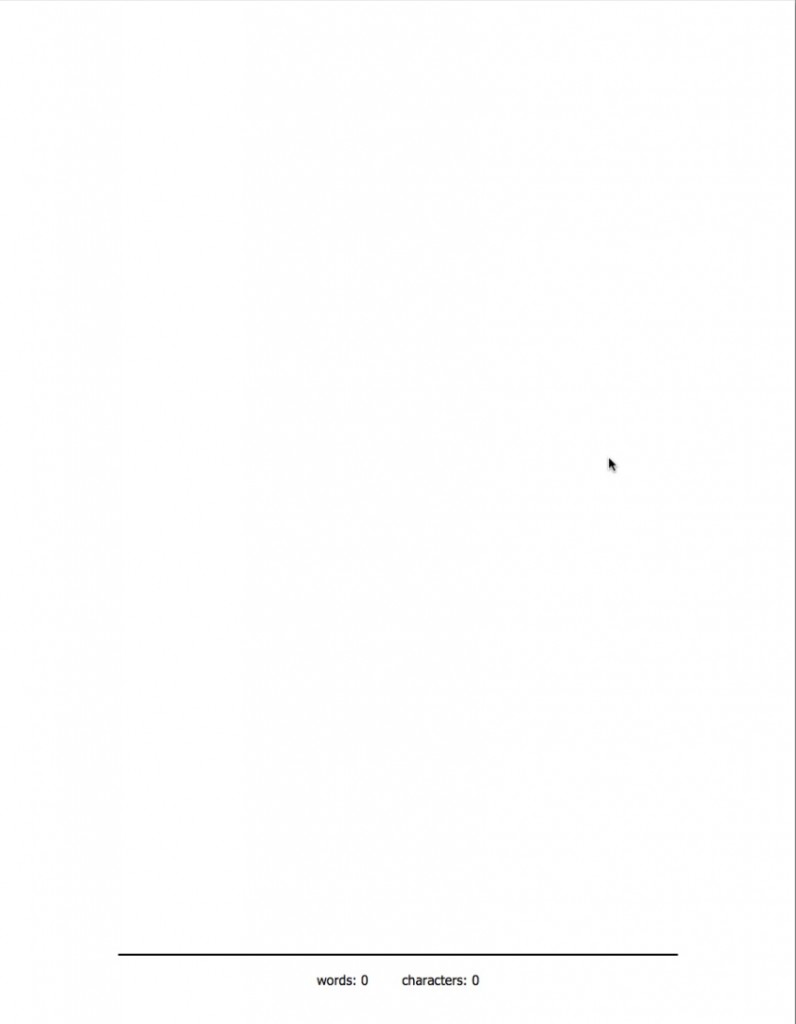I wanted to be a writer from the time I was a kid—the notion just smacked of romance and freedom. It also had the advantage of annoying my father, who wanted me to be an engineer. But I was 40 years old before I wrote anything for publication.
 Twenty years before that, having just spent a couple of years working underground in an Ontario nickel mine, and having more money than I’d ever seen in one pile before, I took a year’s sabbatical. I thought this would be a good opportunity to start my life as a writer. And no doubt it was, but I never took it. I partied for twelve months, mostly in Jamaica and Montreal. I guess I thought I was collecting experience. And waiting for inspiration. Big mistake.
Twenty years before that, having just spent a couple of years working underground in an Ontario nickel mine, and having more money than I’d ever seen in one pile before, I took a year’s sabbatical. I thought this would be a good opportunity to start my life as a writer. And no doubt it was, but I never took it. I partied for twelve months, mostly in Jamaica and Montreal. I guess I thought I was collecting experience. And waiting for inspiration. Big mistake.
Old wisdom:
“Genius is one percent inspiration, ninety-nine percent hard work.” Thomas Edison
“I only write when I am inspired. Fortunately I am inspired at 9 o’clock every morning.” William Faulkner
“A writer is someone who writes. ” Somebody, probably a bunch of people
But there’s more to it than that.
Half the people I know—maybe more, now that digital technology makes life so much easier—say that, someday, they want to write something. Most people never do. Most people never even get started.
In this post, I’ll begin with a first, and often insurmountable, psychological hurdle:
Actually starting something
No matter how powerful your lust to create, the enigma of the blank page, that field of infinite possibility, can prove a more powerful detumescent.
The typical reaction:
– The sudden immediacy of all those little chores you’ve been putting off.
– The decision to wait for when you’re “in the mood.”
– The decision you need more life experience first—I once partied away a whole year in Montreal that way.
Rx for the dreaded blank-page syndrome:
Write! Don’t worry too much about what you write, just scribble something on that page.
And this is important: Don’t think. Write! You always know far more than you think you do. What you “know” is something that evolves in a dialogue between you and the text. The process of communing with the page, the surprise of discovery. (See also Writerly occupational hazards: Premature thought.)
Here’s the thing. That story probably doesn’t exist. Literally. It’s probably not even there in the writer’s own head. Not yet, anyway.
How do writers know what they’re going to write? Let’s demonstrate. Anybody can write a shopping list. All you do is jot down the needed items, right? Wrong. Even with a piece of writing that simple, the author probably doesn’t know, at the outset, what’s going to appear on the list. The text actually evolves from a conversation with the page, a dialectical process starting with the first word or words that appear on the paper. Where, for example, did the following story come from?
Shopping List
Peter is a writer. Things aren’t going so well, and he needs a break, maybe a walk to the corner store for a few essentials. Julia, his partner, is always telling him he has a leaky memory, he should make lists, so he decides to make a list. The light in Julia’s study has burned out, Rex won’t eat Captain Cal’s Carp for Canines even with ketchup, there’s no soap for the kitchen sink-full of dishes, and Peter needs avocados for tonight’s guacamole. So he scribbles “lightbulbs,” “dog food,” and “soap” on a piece of paper.
lightbulbs
dog food
soap
At that point his internal editor stands back and asks: What kind of soap? He adds the word “dish.” “Dish soap” is followed by “hand soap,” since Peter now remembers they’re almost out of it. Hand soap in turn evokes the cheesecake his girlfriend Julia made the evening before, though he would never tell her that, and he adds Sara Lee poundcake to the list. The list continues to ramify. Not only does he think of things he had in mind before he sat down to write, other items are inspired by the list itself, even by the process of composing it. His pen starts to skip and he scribbles “refills,” going over the letters again a couple of times so they’re legible. Perhaps that last item isn’t part of the process, strictly speaking, but it could well feed back into it by evoking “notepads,” “envelopes,” and “ravioli”—which are, after all, another kind of envelope. Then he remembers they are almost out of Parmesan cheese. Here’s how the list stands thus far:
lightbulbs
dog food
soap (dish)
hand soap
poundcake
refills
notepads
airmail envelopes
ravioli
Parmesan cheese
Did Peter know what he was going to include in that list before he wrote it? In this case—probably in most cases—definitely not. Not aside from the first three items. The list was a voyage of discovery. A simple shopping list. Think how much truer this is likely to be of a short story or a novel.
Even where revision remains at the level of specifying “hand soap” rather than merely “soap,” unforeseen ramifications may swiftly follow, as with “poundcake.” How much more far-reaching the effect where the internal reader/editor (or, in one case, a partner named Julia) advises the novelist: “Not ‘Brian.’ No private eye was ever named Brian.” Names, after all, are like dehydrated characters—just add the right context and full-blown people blossom forth. Their stories furcate, unwinding ahead down this road and that one dragging their authors along after them. In this case, the dialectic becomes even more fertile where the internal reader/editor or, last night, a woman named Julia suggests: “Wouldn’t the situation be more dramatic if the cop’s partner was black? Or, even better, a black woman? Let’s call her K.T. Cruz.” Should the writer agree, the novel-to-be is going to be vastly different from the novel-that-might-have-been, wherein the cop-protagonist’s partner was a red-headed cracker named Billy Bob Pudbuster.
As a story evolves, inspiration for new plot directions, new characters, and unforeseen action increasingly springs from the text itself. The manuscript-in-progress itself soon begins eliciting ideas from the writer. From the writers’ point of view—from within this process—the most impressive instances of this appear when the very characters that they have created start showing signs of autonomy, doing and saying unexpected things, even making decisions about plot and theme (decisions about their own lives, essentially). This often comes as a real surprise to their authors.
Take a more immediate example. I composed the above paragraphs after writing down the question “How do writers know what they’re going to write?” and the phrase “a conversation with the page.” It was essential to get those words down on paper first. I rambled on from there, not knowing where things were headed, and I found myself bemused at what emerged from the process. If I hadn’t had other deadlines, who knows where things might have led?
*
So the writer—his name is Peter—originally sat down to produce a shopping list, afraid he might forget dish soap, dog food, lightbulbs, and avocados. With the writing of the first word, he entered into a communion with the page, and the list he took with him was a product of that conversation—not something he had held in mind and intended to transcribe. And he did forget the avocados—something he had had in mind before he sat down. But the writing process distracted him from it, not to mention his running out of ink in the middle of things. And his girlfriend—let’s call her Julia—didn’t get to try his tacos with refried beans and guacamole. He made ravioli instead and she told him it sucked. So he told her how her poxy cheesecake tasted like hand soap, and the next thing he knew he had tomato-and-basil sauce in his hair and there was ravioli everywhere.
*
Ruthie was nothing like Julia. For one thing she made a tasty pumpkin cheesecake; for another she liked Peter’s ravioli. She liked everything about him, in fact. Not only that, she paid her share of the rent. And Julia had taken the stinking dog with her. Peter was as happy as he had ever been.
___________________________
Sometimes writers have a sense of what they want to write. A bit of brainstorming on the page, a few ideas doodled, and it may fall together in broad outline. They go on from there to fill in the blanks.
As often as not, however, writers have only the vaguest notion of what it is they want to write. This is perhaps more typical of the fiction writer than it is of the person setting out to write an essay or a report. In this case, a single doodle—a snatch of dialogue, a name, a scene, a suggestive statistic—may appear pregnant with a story. The writer simply pursues the path it points towards—following on, never sure what remains to be uncovered or developed around the next corner, and the next.
Whatever you do, don’t wait till it’s all together, explicitly, right there in your head. Chances are you’ll never write anything except, maybe, relatively straightforward things such as reports.
Over the next few posts on this blogsite, we’ll focus on
1. other psychological hurdles, especially for new writers;
2. where ideas come from; and
3. a strange phenomenon we can call the “Muse Effect.”


Same with speaking; i.e., Here’s what I want to say, “…
We know it’s there, but we don’t yet know what it is before it is articulated, made real through language.
“
I think you’re right. But if it’s a similar process, an interesting question arises (of course it has arisen many times in many minds in the past): What are the two sides of the dialogue that shape the utterance? Assuming there are only two.
🙂 The smiley face is to defend me vs. claims I’m some kind of lunatic.
Wait, wait, wait! I know the answer… or I know I know it… & I know when I don’t… without explicitly knowing it — only that it is “available for retrieval.”
For me, that’s the interesting thing. It’s all in the uttering, or the utterance, so to speak.
I hear you, Collin, and I believe everything you say. I’ve heard lots of writers say it before, like Faulkner, “I only write when I’m inspired. Happily, I’m inspired at 9 o’clock each morning.” But I just can’t do it. I have never been able to write on a schedule. I’ve never really been able to do anything on a schedule. ADHD or something. Inspiration always surprises me, and actually finishing a piece of writing always surprises me even more.